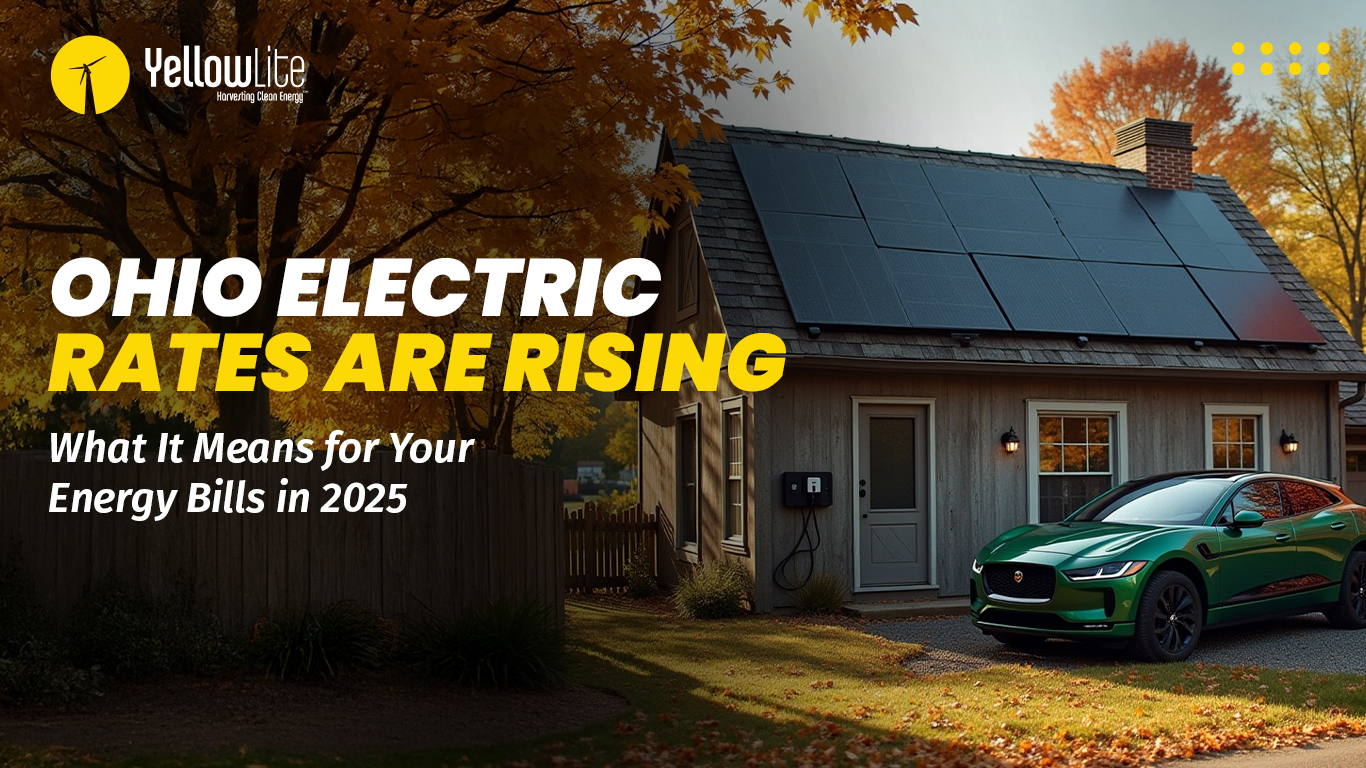Pennsylvania's net metering program offers a golden opportunity for homeowners and businesses to optimize their solar returns efficiently. This initiative allows participants to feed excess electricity their solar panels generate back into the grid in exchange for credits. These credits can significantly reduce monthly energy costs, making solar an appealing investment. With YellowLite’s expertise, the transition to harnessing solar returns and benefiting from net metering has never been easier.
How Solar Returns Work Through Net Metering in Pennsylvania
When your solar system produces more electricity than required, the surplus is sent back to the grid. You receive credits for this excess production, which offset the cost of grid electricity used when your system isn’t producing. Pennsylvania’s net metering policy allows these credits to carry over month to month within the same billing year. At the end of the annual billing cycle, any remaining credits are reimbursed by the utility at the avoided cost rate rather than carried over indefinitely.
YellowLite’s Role in Maximizing Solar Returns in Pennsylvania
YellowLite is dedicated to empowering Pennsylvanians to leverage solar technology for a sustainable future. By providing comprehensive solar solutions—from system design and installation to navigating the net metering application process—YellowLite ensures that every client maximizes their solar returns. Our team of experts also assists customers in signing up for Solar Renewable Energy Credits (SRECs), further enhancing financial benefits.
SRECs are tradable credits that homeowners earn for every 1,000 kWh of electricity their solar system generates.
In Pennsylvania, the current market price for SRECs is approximately $29. By registering for SRECs, solar owners can earn additional income while contributing to renewable energy goals. YellowLite simplifies this process, ensuring customers can capitalize on these opportunities.
A Closer Look at Net Metering Policies in Pennsylvania
Net metering policies in Pennsylvania are crafted to encourage the adoption of renewable energy sources, enabling substantial solar returns for both residential and commercial participants. These policies apply to systems generating up to 50 kW for homes and up to 5 MW for larger entities, making solar returns accessible to a wide range of energy consumers.
Who Benefits from Solar Returns via Net Metering in Pennsylvania?
Net metering is accessible to any Pennsylvania resident or business owner with a qualifying solar, wind, or hybrid system. This includes:
- Residential homeowners: Small-scale systems help reduce household electricity costs by maximizing solar returns.
- Businesses: Larger systems can significantly decrease operational expenses through enhanced solar returns.
- Agricultural entities: Farms using solar to power operations and reduce overhead, increasing their solar returns.
The Impact of Solar Returns and Net Metering

- Financial Savings: Homeowners participating in net metering save an average of 20% on annual electric bills by boosting their solar returns.
- SREC Income: Solar owners in Pennsylvania can earn $29 per SREC for every 1,000 kWh their system generates, adding another revenue stream.
- Property Value Increase: Properties with solar installations generally sell for about 4.1% more than those without, reflecting the increased demand for homes with high solar returns.
- Environmental Impact: Over 4,000 installations in Pennsylvania have significantly reduced carbon emissions, magnifying the state’s contribution to global sustainability efforts.
- Energy Independence: By enhancing solar returns, net metering also bolsters energy security, reducing reliance on external power sources and mitigating blackout risks.
Explore More About Solar Returns and Net Metering
To delve deeper into how solar returns and net metering work in other states, visit our comprehensive guide: Net Metering Explained: States That Offer It in 2024. For details specific to Ohio, check out our focused article on Net Metering in Ohio.
FAQs
How does net metering in Pennsylvania reduce my electricity bills?
Net metering allows you to earn credits for the excess electricity your solar panels produce and send back to the grid. These credits can then be used to offset the cost of electricity you draw from the grid when your solar production is insufficient, significantly reducing your monthly electricity expenses.
What are the eligibility requirements for participating in net metering in Pennsylvania? To be eligible for net metering in Pennsylvania, your solar installation must be less than 50 kW for residential setups and less than 5 MW for commercial or industrial installations. Additionally, your system must be interconnected and comply with all local utility regulations and guidelines.
Can I carry over net metering credits in Pennsylvania, and if so, for how long?
Yes, in Pennsylvania, unused net metering credits can be carried over month to month within the same billing year. At the end of the annual billing cycle, any remaining credits are reimbursed by the utility at the avoided cost rate.
What happens to my net metering credits if I move from my current home in Pennsylvania?
Net metering credits are generally non-transferable between different service addresses. If you move, credits remaining under your account in the net metering system will likely be forfeited or absorbed by the utility company, depending on local utility policies.
Are there any fees or additional costs associated with net metering in Pennsylvania?
While there are no state-mandated fees specifically for net metering, some utilities may charge an initial interconnection fee or require a meter upgrade to accommodate net metering. It’s essential to consult with your local utility company to understand any potential costs involved.
How does YellowLite assist with the net metering application process in Pennsylvania?
YellowLite streamlines the net metering application by handling all paperwork and coordination with your utility company. We ensure that your system meets all technical specifications and regulatory requirements, facilitating a smooth transition to solar power and enabling you to start earning net metering credits as soon as possible.



